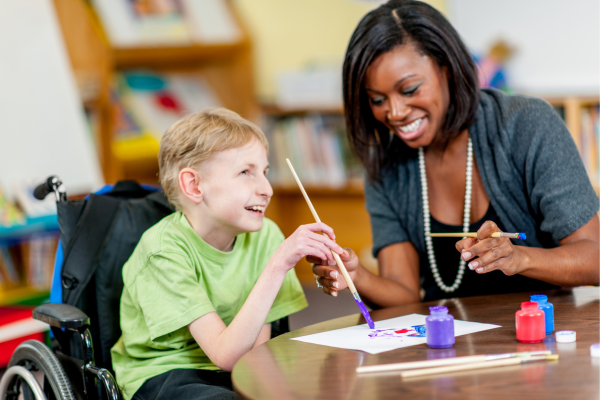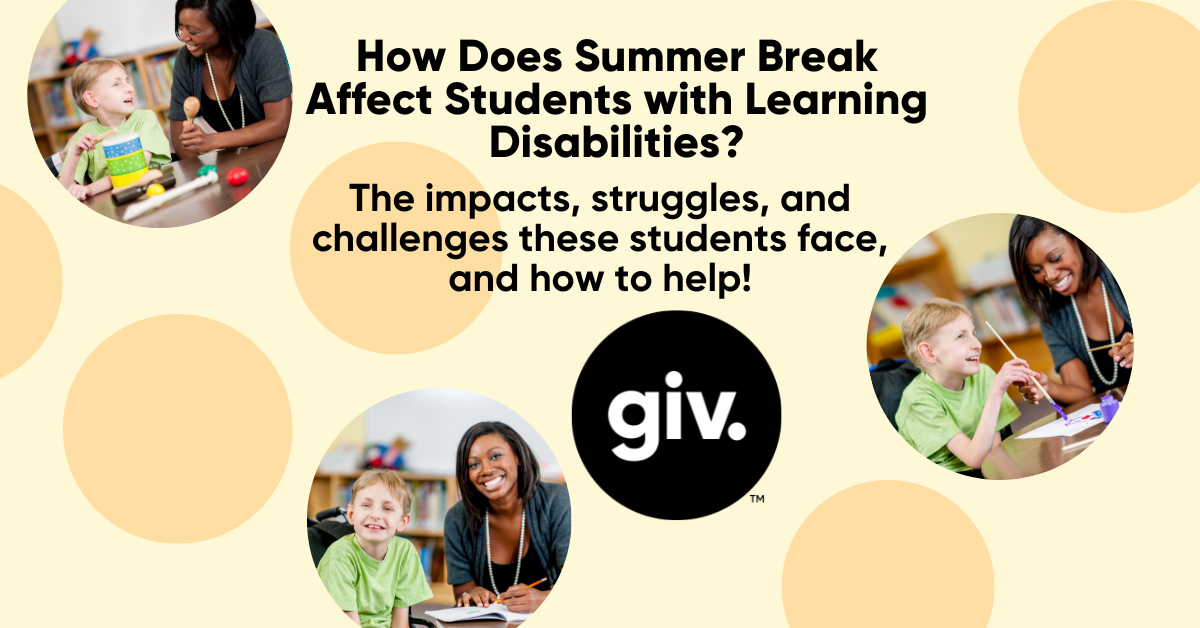“How does summer break affect students with learning disabilities?” This is a question that often arises among educators, parents, and students themselves. As the warm weather approaches and schools close their doors for the summer, it is essential to recognize the potential impact that this break can have on students with learning disabilities. In this blog post, we will explore the challenges faced by these students during summer break and discuss strategies and support systems to help them navigate these difficulties successfully.
The Disruption of Routine and Structure:
Summer break brings a significant disruption to the routine and structure that students with learning disabilities rely on for academic and personal success. Many students thrive in structured environments where they have clear expectations, consistent schedules, and supportive guidance. However, when the regular school routine is replaced with a more unstructured and leisure-oriented summer break, it can be challenging for these students to adapt.
Without the familiar structure of school, students may struggle with time management, organization, and maintaining a sense of purpose. The lack of a consistent daily schedule can make it difficult for students with learning disabilities to stay focused and motivated. They may experience a sense of disorientation and find it harder to manage their responsibilities effectively. This disruption in routine can lead to increased anxiety, stress, and feelings of being overwhelmed.
To mitigate the impact of the disrupted routine, it is crucial to establish a summer schedule that incorporates elements of structure and predictability. Parents and educators can collaborate to create a flexible but consistent routine that includes designated times for learning, leisure activities, and breaks. Visual schedules and timers can be particularly helpful for students with learning disabilities, providing a visual representation of the daily routine and helping them manage their time effectively.

Regression in Academic Skills:
One of the significant concerns during summer break for students with learning disabilities is the potential regression in their academic skills. These students often require additional time and support to master new concepts and skills. The extended break from formal education can result in a loss of progress, commonly referred to as the “summer slide.”
Without consistent academic engagement and practice, students may experience a decline in their reading, writing, and mathematical abilities. For example, struggling readers may lose fluency and comprehension skills, while students with dyscalculia may struggle to retain the mathematical concepts they worked hard to grasp during the school year. This regression can be demoralizing for students and may require additional remediation when they return to school in the fall.
To combat academic regression, it is crucial to promote continuous learning opportunities throughout the summer. Encouraging students to engage in reading, writing, and problem-solving activities can help maintain and strengthen their skills. Libraries often offer summer reading programs that provide incentives and a structured approach to keep students reading during the break. Additionally, online resources, educational apps, and tutoring services can offer tailored support to reinforce academic skills and prevent significant regression.

Social Isolation and Limited Peer Interaction
Summer break can also lead to social isolation and limited peer interaction for students with learning disabilities. School provides a structured environment that facilitates socialization and opportunities for peer interaction. However, during the summer, the reduced structure and lack of organized activities can make it challenging for these students to engage with their peers regularly.
Social isolation can negatively impact a student’s emotional well-being, self-esteem, and overall social development. It is crucial to recognize the importance of social connections and provide opportunities for students with learning disabilities to interact with their peers during the break. Parents can explore community programs, summer camps, or recreational activities that align with their child’s interests and abilities. These programs can provide a supportive environment where students can build friendships, develop social skills, and engage in meaningful social interactions.
In addition, online communities and support groups can offer a platform for students to connect with others who share similar experiences. Virtual meetups, discussion forums, and social media groups can provide a sense of belonging and support, even when physical interactions are limited. Engaging with these online communities can empower students, boost their self-confidence, and foster a positive social environment.
Addressing the Summer Slide: Strategies and Support
To support students with learning disabilities during summer break and mitigate the challenges they may face, various strategies and support systems can be implemented.
First and foremost, open communication between parents, educators, and students is crucial. Parents can initiate conversations with their child’s teachers to gain insights into the areas that need continued focus during the break. Understanding the specific learning needs and goals of the student will guide the development of an effective summer plan.
Engaging in educational activities and incorporating learning into daily routines can be beneficial. This can include reading books related to the student’s interests, practicing math skills through everyday activities, and exploring interactive educational websites and apps. Creating a learning-friendly environment at home, such as a designated study area, can also help students stay focused and motivated.
Summer tutoring or specialized educational programs can offer targeted support tailored to the student’s learning disabilities. These programs can provide structured instruction, remediation, and practice to prevent significant regression and bridge the gap between school years. Collaborating with qualified professionals who understand the unique needs of students with learning disabilities can make a significant difference in their academic progress.
Lastly, self-care and relaxation should not be overlooked. Summer break also provides an opportunity for students to rejuvenate and recharge. Encouraging physical activities, pursuing hobbies, and spending quality time with family and friends can contribute to overall well-being and a balanced summer experience.

Conclusion:
Summer break undoubtedly poses challenges for students with learning disabilities. The disruption of routine, regression in academic skills, social isolation, and limited peer interaction can impact their well-being and academic progress. However, by recognizing these challenges and implementing effective strategies and support systems, we can ensure that students with learning disabilities have a fulfilling and productive summer break. By nurturing their academic growth, fostering social connections, and maintaining a balanced approach, we can empower these students to thrive during the break and beyond.






